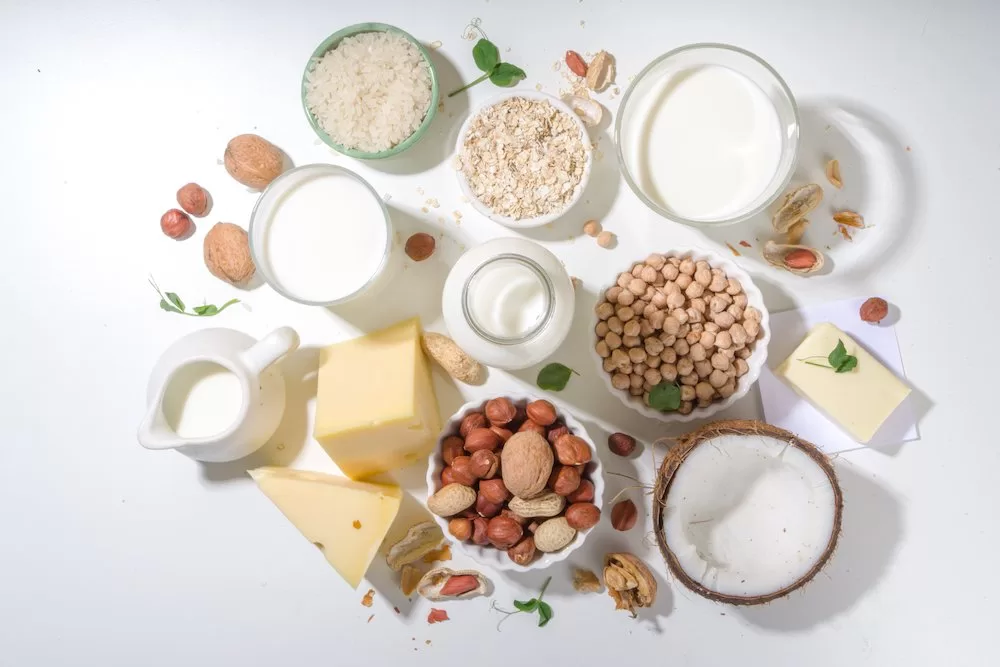How are Vegan cheese products tracking?
Vegan cheese struggles to mimic traditional cheese’s texture and taste. Hydrocolloids like Agar and Carrageenan are key; Agar ensures firmness, Carrageenan aids creaminess and meltability. Manufacturers face challenges with texture, especially in sliced vegan cheese, where the right Carrageenan balance is essential for ideal consistency without affecting sliceability.
Vegan cheese sales have remained small, achieving a take-home value of £174m, accounting for 5% of the wider cheese category [Kantar 12 months to 4 Sept 2022]. In contrast, for the same period, milk alternatives were worth £531.2m, accounting for more than 15% of the wider milk category.* The Grocer
But consumers would love to see the perfect vegan cheese and manufacturers have struggled to create products that hit the mark when it comes to plant-based cheeses. It appears to be difficult to match the texture and taste of popular cheese favourites and that’s something that still needs to be addressed.
Our NPD & Ingredient Technologist, Shristi Debnath, explores the problems manufacturers are facing and how hydrocolloid ingredients play a huge part in the development of vegan cheeses.
What ingredients would you recommend? Agar or Carrageenan for texture, they help create a firm texture in cheese products. However, Carrageenan has unique properties that make it particularly suitable for achieving a smooth and creamy texture in vegan cheese. Agar is also heat-resistant, making it suitable for applications where cheese needs to be melted or cooked without losing its shape.
The specific benefits? Plant-based milk alternatives provide the base for the cheese and contribute to its creamy texture. While Agar and Carrageenan provide firmness to the cheese, they also have the ability to melt when heated. This allows vegan cheese to achieve a smooth and creamy consistency when melted, making it suitable for various cooking applications such as pizza, grilled sandwiches, or pasta dishes.
What problems do you see manufacturers facing when it comes to Vegan cheese NPD? Problems such as achieving the right texture and meltability without the use of dairy products. Finding suitable emulsifiers and stabilisers to match the properties of dairy cheese can be difficult.
In your opinion which format could be greatly improved? In my opinion, the vegan cheese format that could benefit from more development work is the sliced format. While there are many options available, achieving the perfect texture and meltability in sliced vegan cheese without compromising on taste and quality remains a challenge for many manufacturers. The amount of Carrageenan used in a vegan cheese recipe can vary depending on the desired texture and consistency. Too little Carrageenan may result in a softer cheese that is difficult to slice, while too much can make the cheese overly firm or gummy.
It’s a balance when creating these products and hydrocolloid ingredients are the key to success. We can help determine the right dosage and also which hydrocolloid would best suit your end application objectives.
What’s next? Speak to us and our NPD team to work through this reformulation process and start using our hydrocolloid ingredients.
Contact us now Tel: +44 (0) 1430 801021 or email sales@healan.com

